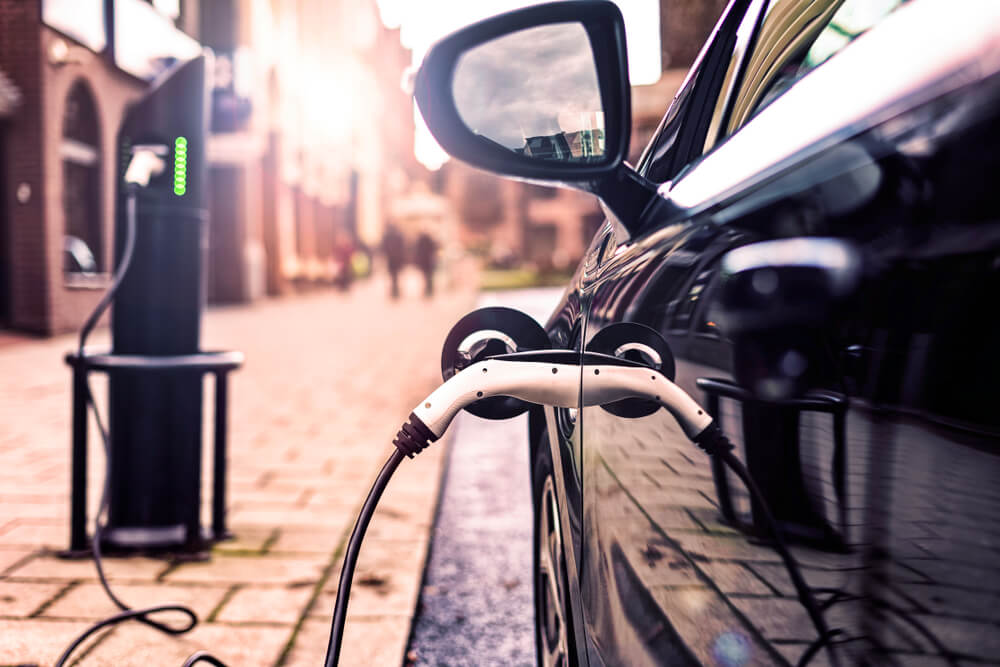Do Local Governments Have a Responsibility in the Transition to Electric Vehicles?

April Miller is a senior technology writer at ReHack Magazine. She is particularly passionate about sharing her expertise with people in professions such as government and education, helping them implement technology into their professional lives to increase their productivity, efficiency and personal enjoyment of their work.
Electric vehicles have existed for two centuries, and their underlying technologies predate internal-combustion engines. It’s reasonable to ask — what went wrong? In 2022, adopting EVs at scale feels like an impossible hill to climb. The task is especially onerous in the U.S. due to its patchwork of 50 state governments and countless local ones.
How much of a responsibility do those local governments have to support the transition to electric vehicles?
Should the Government Support Electrification?
One high-profile politician caught flak recently for suggesting people buy electric cars to counter rising gas prices. It’s a fine idea, except it comes at a time when the burden to the consumer is simply too high to be so cavalier.
Before discussing local governments and electric cars:
- Does the government have a responsibility to support such vehicles and electrification in general? Electrification of every mechanism, device and process currently depending on fossil fuels is one of the only courses left for humanity to pursue to avoid catastrophic environmental collapse.
- Should the government support transformative technologies?
- Do elected officials have a responsibility to be conversant in emerging technologies that can raise the standard of living?
- Do governing bodies have a responsibility to ensure such technologies are accessible and affordable for all — including individuals and corporate interests?
- Should representatives in a democratic government ensure that national, state or local governments have adequate revenue streams available to facilitate transitions to emerging technologies? Is this vital if it raises the standard of living or positively impacts U.S. international competitiveness?
- Do elected officials have a responsibility to be conversant in emerging technologies that can address some of the trends impacting climate change?
The reasonable answer to all or most of these questions is yes. Government should do all of these things if it serves the people.
Electric cars impact the United States’ international competitiveness and ability to attract domestic and foreign investment. They also increase the standard of living and lower the cost of it by eliminating tailpipe emissions, using no fossil fuels and supporting a livable planet.
What’s the Holdup on Transitioning to Electric Vehicles?
Electric-car technology dates back 200 years. What would life in America look like if the country had subsidized this as heavily as it did oil and gas companies?
Fossil fuels received a gift of $5.9 trillion from taxpayers in 2020 alone. Imagine the EV charging infrastructure that money could buy.
Henry Ford sold 15 million Model Ts from 1908 to 1927, which most Americans remember as the first automobile of any importance. Gas-powered cars continued their reign until the 1970s, when gasoline began rising in price, cars became more expensive to own and people began wondering whether they’d bet on the wrong horseless carriage.
Today, it can be more common to hear arguments against electric cars than for them. “They don’t have enough range.” “What about running out of battery in traffic jams?” “There aren’t enough charging stations.”
These were problems 200 years ago, as well. However, gasoline-powered engines should never have been the de facto automobile type because they depend entirely on an external, finite resource — fossil fuels. It should have been obvious before now that petrol-based car technology was always meant to be a temporary solution for getting the working class mobile, inexpensively.
That expense is now too burdensome for most of the general public. There are at least two ways it can be measured — in money and damage to the planet:
- Gasoline rose to all-time historic highs in 2022.
- Burning gasoline contributes significantly to climate change.


How much of a responsibility do those local governments have to support the transition to electric vehicles?
APRIL MILLER
Local Government Can Help Force the Change
Internal-combustion engines caught on because the external resource they required to operate — gasoline — was plentiful and cheap at the time. There was no incentive to change or plan for the future.
There will never be a strong enough incentive for profit-driven organizations to change themselves. That’s despite the missives from the scientific community that use frankly Biblical language in their warnings about ecological collapse.
Today, four in 10 Americans say they are at least somewhat likely to make their next vehicle purchase an electric model. The same survey says that about two-thirds of consumers believe these cars are too expensive to adopt.
The lack of national charging infrastructure, the high cost of EVs and the slow adoption of electric vehicles are three problems that would not exist today if governments in the U.S. had subsidized EV technology. They could have done this 200 years ago as enthusiastically as they embraced and funded oil and gas companies.
Most Americans know oil and gas companies pull the strings in their country. They impact how federal, state and local governments spend their money and get the government to subsidize their products aggressively — like oil and gas wells and automobile factories. The resulting chilling effect on EV development, beginning 200 years ago and continuing until the gasoline price shocks of the 1970s — all point to this being so.
Americans are in favor of big ideas like the Hoover Dam, space exploration and making the United States the country for cutting-edge technology. Average Americans would spend the country’s wealth vastly differently than corporate and moneyed interests do, and they desire planet-friendly products more than ever, seeing as more than 70% of consumers will pay more for clean-label products.
Local governments fit into this picture perfectly. They are closest to the people they represent and understand their views and goals. They know the physical layout, geography and infrastructure of local communities better than anyone in state or federal government. Local governments should be directing spending on EVs and electrification.
Legislators at this level typically lack funding. Areas with richer tax bases always enjoy better schools and higher-quality infrastructure at the expense of poorer and more rural ones.
Local governments can more precisely identify opportunities and the proper way to scale technologies than state and federal governments. Meanwhile, state governments can more effectively allocate funds to these large-scale infrastructure projects than the federal government.
Concurrently, the federal government has more power over corporations, technologies and infrastructure projects that cross state lines or impact the people in general rather than those in a particular municipality.
In other words, local governments close the loop between the needs on the ground and the larger-scale funding management that should happen at the state and federal levels.
Taxes from corporations have been slashed over the last few decades. If these taxes had remained steady and they’d helped subsidize EVs instead of oil and gas, the entities that rely on our nation’s roads the most — companies — would today have a more developed national EV charging system. Their operating costs would be lower and they wouldn’t scramble every few years to meet new EPA emissions standards.
Instead, they spent that time lobbying for lower taxes, which left the country in a difficult position any time big ideas and changes were discussed in Washington. Local governments with dwindling tax revenue have been left with what trickled down. It’s why locals have to intimidate their municipalities into fixing potholes. How are they supposed to build tons of EV charging stations with the funds they have available?
Electric Power to the People
Detractors of EVs say it’s impossible or “not the right time” for them to catch on. Mostly, the argument is that this advancement is too complex to be carried out in a way that makes sense for average people and their communities. However, local governments become ideal resources for state and federal governments. They’re the eyes, ears and subject-matter experts can use to ensure money is spent wisely and in a way that makes sense for their constituents.
Want new articles before they get published? Subscribe to our Awesome Newsletter.

CAREER ADVICE

GOV TALK
